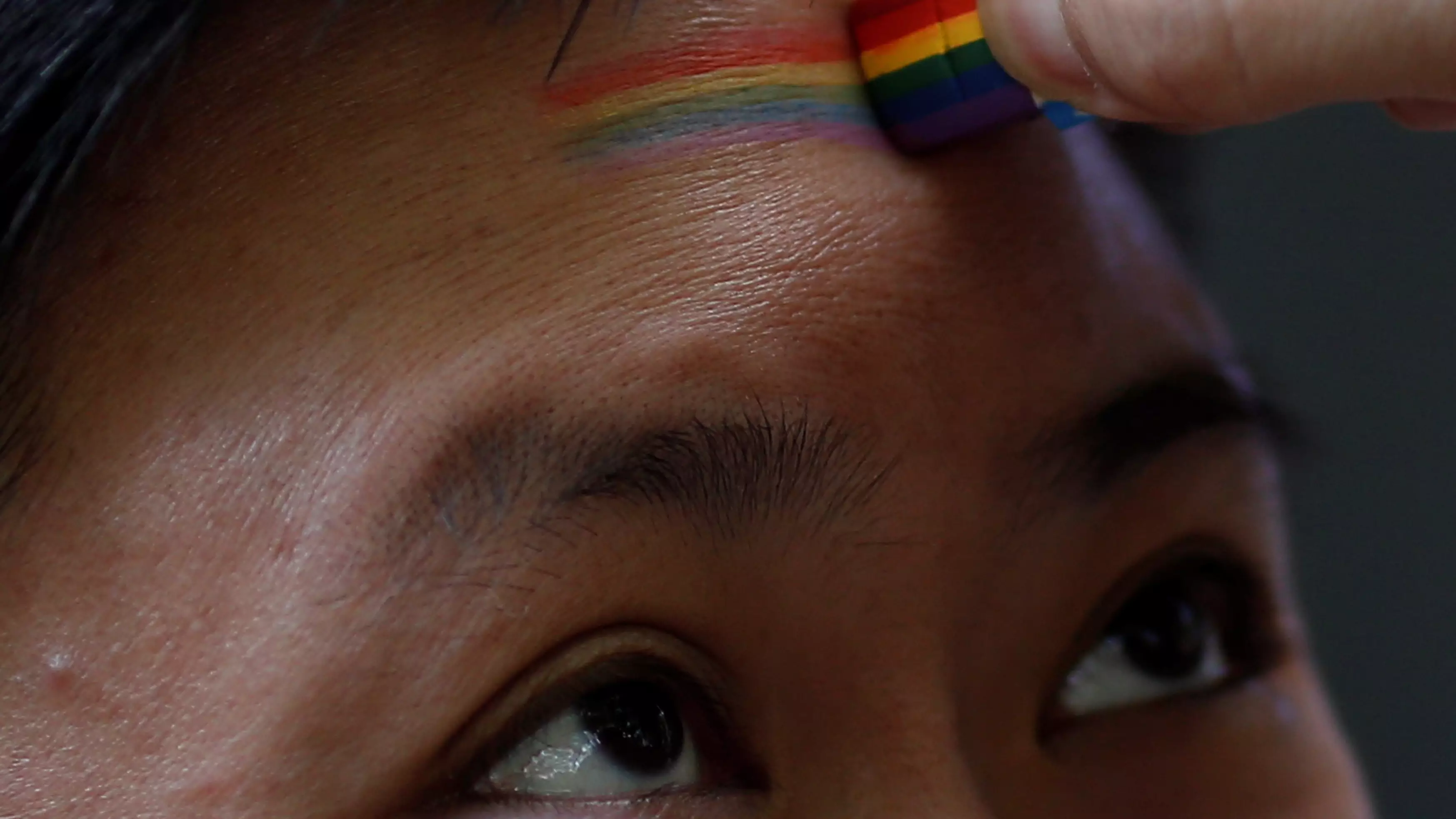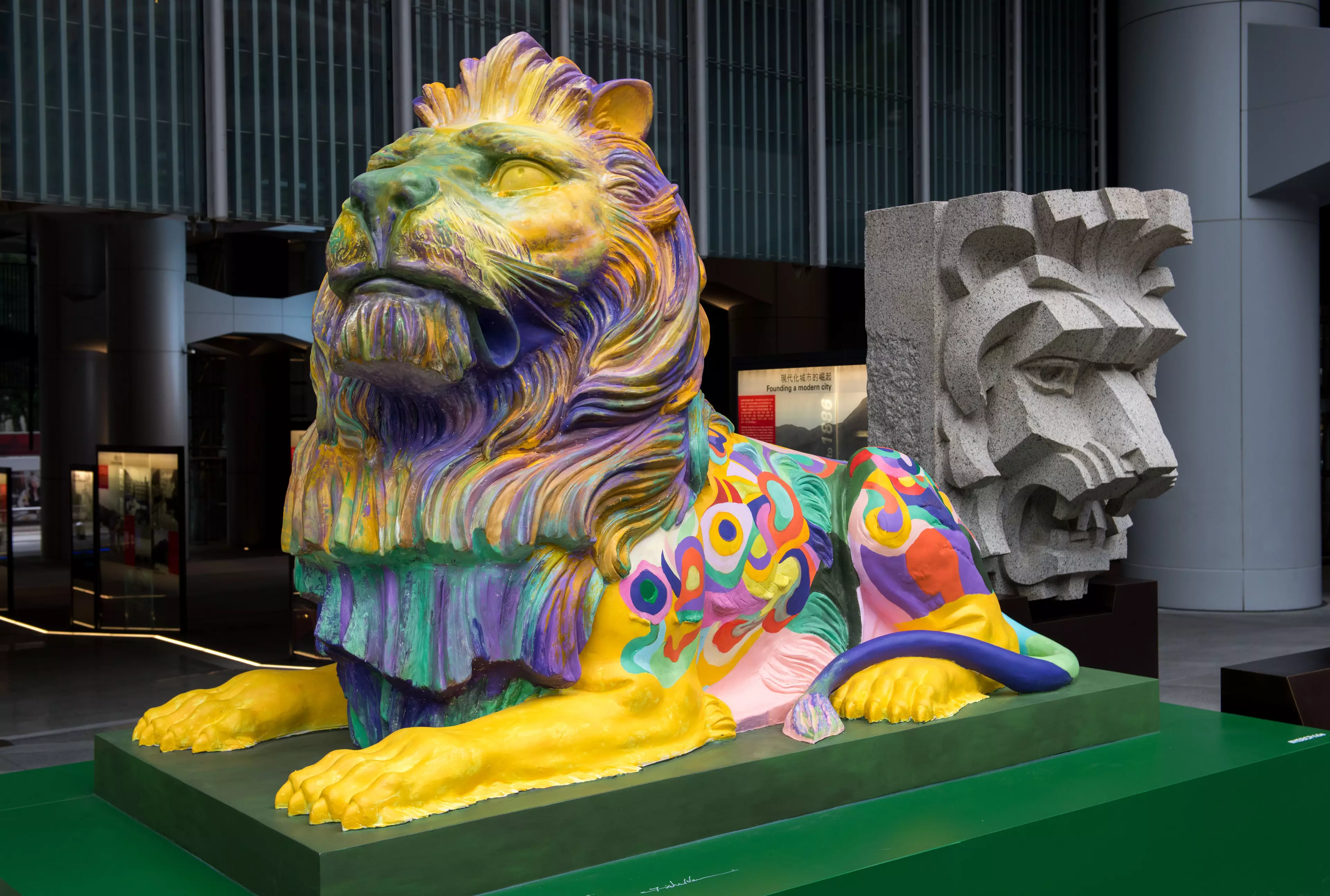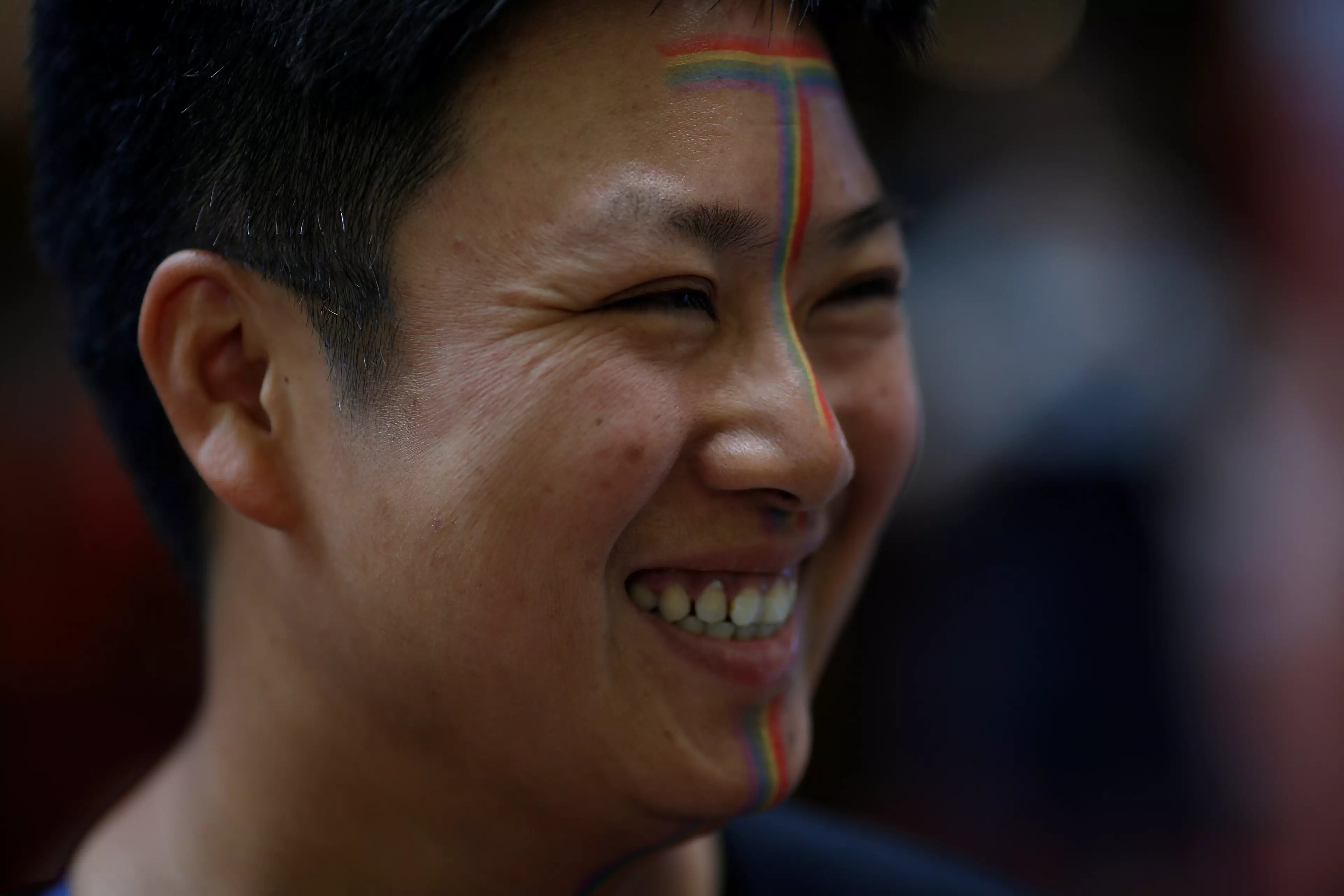
A Chinese man has won his lawsuit against the authorities who diagnosed him with 'sexual preference disorder', and forced him to undergo conversion therapy.
The man, known by the surname Yu, had been forcibly admitted to a psychiatric hospital by his own family - including his wife - where he was made to take medicine and receive injections in an effort to convert him.
Yu spent 19 days in the institution against his will, despite China having removed homosexuality from its list of recognised mental illnesses more than 15 years ago. Although it is no longer on the list, there are still countless stories of families checking gay relatives into hospitals for conversion therapy.
The court hearing Yu's case ordered the psychiatric hospital to issue an apology in the local newspaper and to pay the 38-year-old 5,000 yuan (£570) in compensation.

A rainbow Pride lion displayed in Hong Kong, China. Credit: PA
Advert
LGBT activists are hailing the ruling as the first such victory in China; a country where the gay rights movement is beginning to gain traction.
While religion plays little to no part in China's attitude toward homosexuality, the country's authoritarian politics and conservative views are enough to prevent people from coming out.
This victory for China's LGBT community comes shortly after the country was slammed by a human rights group for banning online content showing 'abnormal' homosexual relationships.
The new regulations imposed by Beijing will prohibit portrayals of homosexuality, prostitution and drug addiction, in an attempt by the China Netcasting Services Association (CNSA) to target what it considers 'abnormal' sexual activity.
Damaging the national image, criticising revolutionary leaders or portraying the supernatural such as 'conjuring spirits' are all deemed offensive in the regulations too.
Anyone who fails to obey the new rules risks being reported to the police for further investigation.

A participant in a Pride Run, Shanghai. Credit: PA
Advert
Li Yinhe, one of China's most famous sexologists condemned the latest move.
"First of all, from the perspective of an artist, very few countries in this world set up a censorship system that violates its citizens' freedom to create arts," Li wrote on Weibo, a Chinese microblogging website. "Second, it also violates the rights of sexual minorities to express their sexual preference."
The Chinese government banned all representations of LGBT people on TV in 2016.
It said: "No television drama shall show abnormal sexual relationships and behaviours, such as incest, same-sex relationships, sexual perversion, sexual assault, sexual abuse, sexual violence, and so on."
In 1997, homosexuality was decriminalised in China and in 2001 it was taken off the list of medically recognised mental illnesses. However, the country still has a long way to go in the eyes of LGBT rights campaigners.
Advert
Source: Guardian
Featured Image Credit: PA